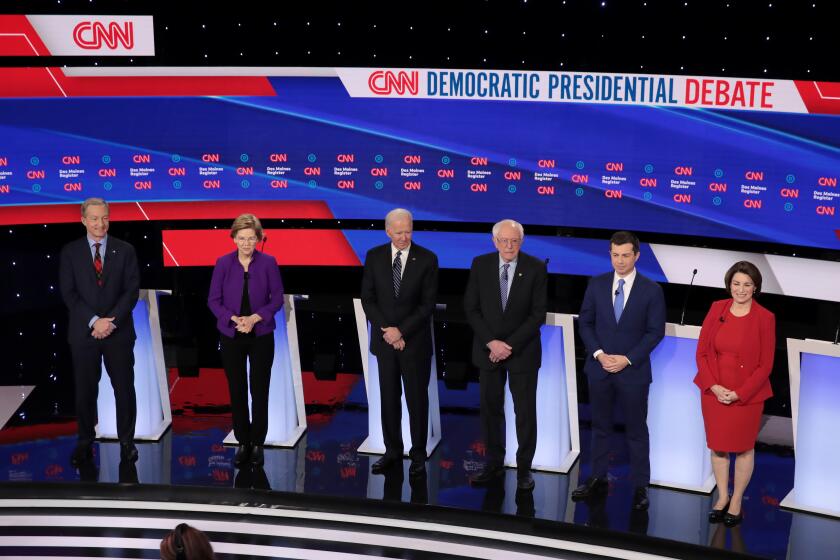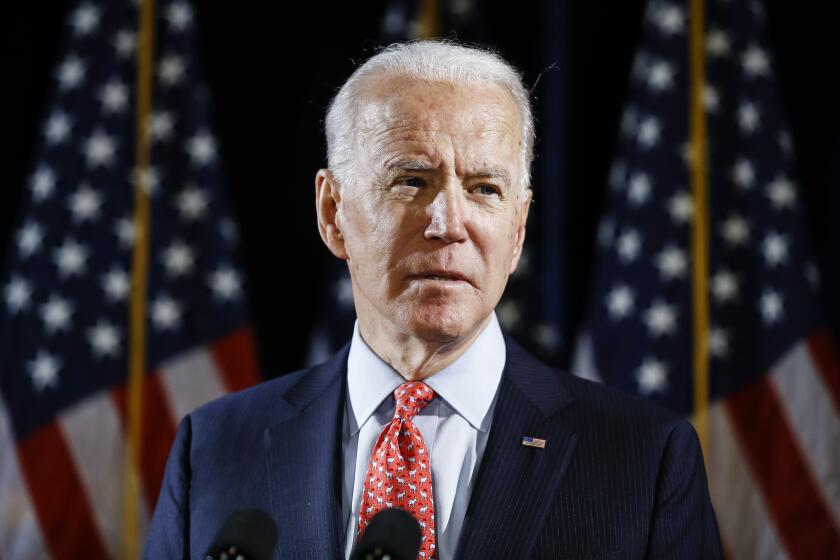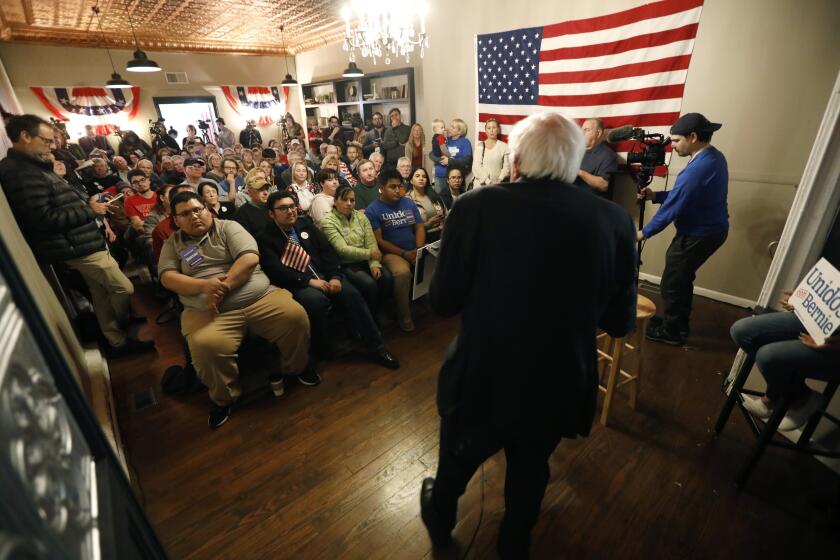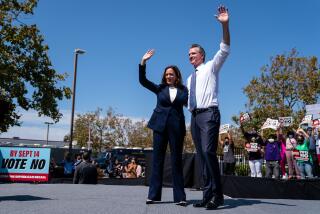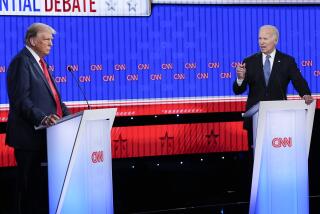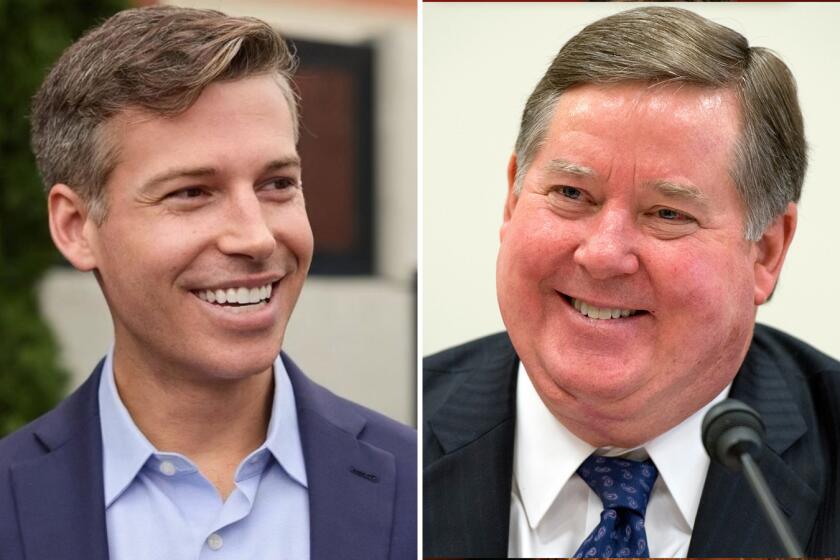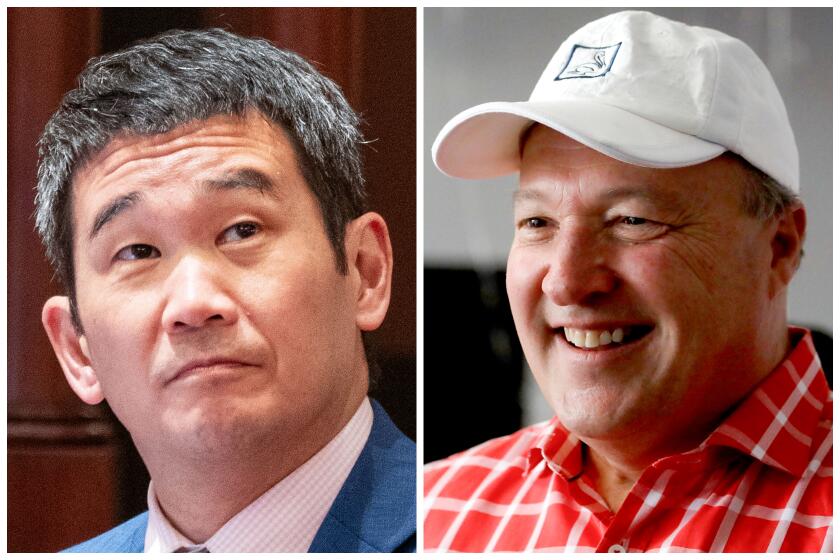January Democratic debate: What’s at stake for the candidates onstage?
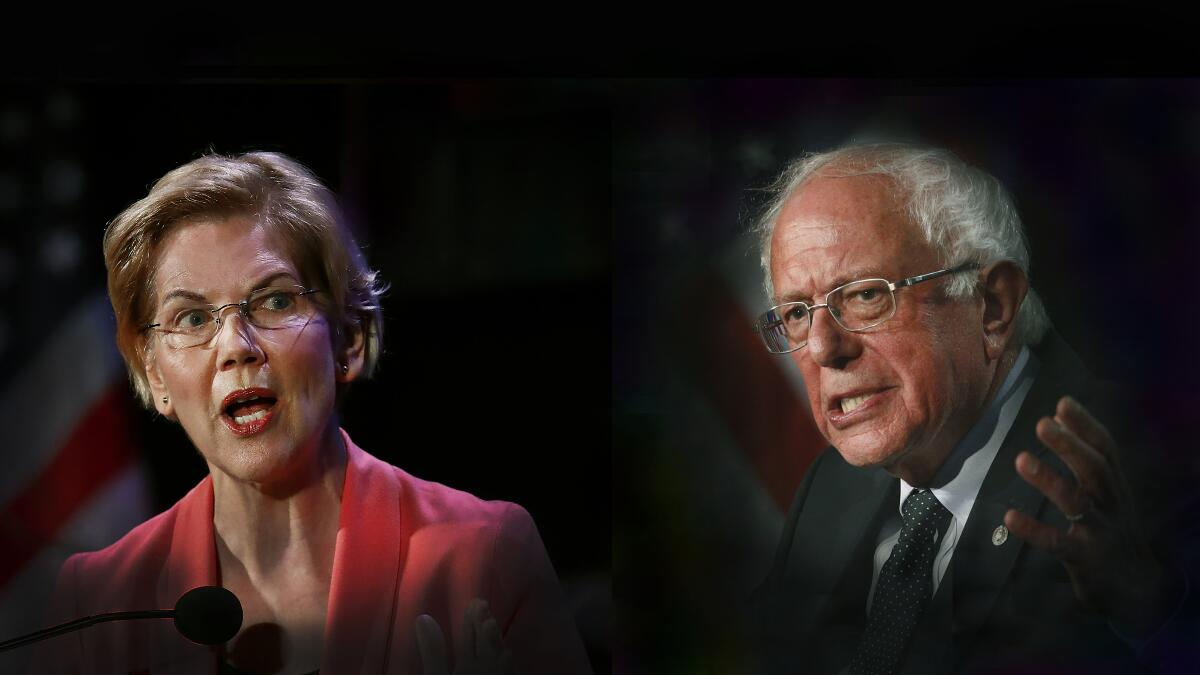
The Democratic presidential field is set to have its smallest and potentially most influential debate yet. It could also become among the most contentious if candidates bring their campaigns’ offstage issues onstage.
On Tuesday at 6 p.m. PST, six candidates are slated to gather at Drake University in Des Moines to slug it out less than three weeks before the first-in-the-nation caucuses in Iowa.
Less than three weeks before Iowa begins the presidential balloting, six Democrats took to the stage for the first debate of the new year and the last before voters begin having their say.The debate on the campus of Drake University featured four of the six candidates leading the presidential pack: former Vice President Joe Biden; former South Bend, Ind., Mayor Pete Buttigieg; and Sens. Bernie Sanders of Vermont and Elizabeth Warren of Massachusetts. The two others onstage, Minnesota Sen. Amy Klobuchar and billionaire political activist Tom Steyer, met the polling and fundraising requirements that shut out half a dozen other hopefuls.The candidates, trying to make their case in a wide-open race, clashed on healthcare, war and a woman’s chances to win the presidency. Catch up on who said what in Des Moines:
Gone are the two-night, 10-candidates-at-a-time spectacles that marked the earliest debate rounds of the Democratic contest last year. This two-hour debate will feature former Vice President Joe Biden; former Mayor Pete Buttigieg of South Bend, Ind.; Sens. Amy Klobuchar of Minnesota, Bernie Sanders of Vermont and Elizabeth Warren of Massachusetts; and billionaire activist Tom Steyer.
With fewer candidates onstage, there will be more time for each to spar, and this week Sanders and Warren were already clashing well before the debate. Warren blasted Sanders for sending volunteers out to “trash” her after his campaign reportedly circulated talking points aimed at Warren supporters, alleging she does not bring new voters into the process. And Sanders, accused of telling Warren in a 2018 closed-door meeting that a woman couldn’t win the presidency, responded to the anonymously sourced report by saying Warren’s staffers were lying. Then Warren issued her own statement, contradicting Sanders.
This will be the first debate round in which all the participants are white. A dozen Democrats are still campaigning, and notable names missing from the stage include Rep. Tulsi Gabbard of Hawaii, entrepreneur Andrew Yang and billionaire former New York Mayor Michael R. Bloomberg. Sen. Cory Booker of New Jersey dropped out of the contest on Monday.

Why is this debate so small if there are still a bunch of Democrats in the race?
The Democratic Party set the highest bar yet to qualify for this debate. Candidates must have reached at least 5% support since Nov. 14 in at least four national or early-state polls, or at least 7% support in two state polls from Iowa, New Hampshire, South Carolina or Nevada. Candidates must have also secured donations from at least 225,000 unique donors, with a minimum of 1,000 unique donors per state in at least 20 U.S. states, territories or the District of Columbia.
The field is down to Joe Biden now that Bernie Sanders ended his presidential campaign. Here is the Democrat heading for a battle with President Trump.
Yang and Booker met the donor threshold but fell short in polls. Booker got eight candidates to sign a request to the party to lower the qualification thresholds; that didn’t happen. Yang offered to help fund the cost of more polling, and on Saturday his campaign put out a statement complaining about the Democratic National Committee’s process and saying Yang’s camp had commissioned its own polls showing him at 5% in Nevada and New Hampshire.
Bloomberg, who is self-funding his campaign and spending massively on paid staff and television advertising, met the poll qualification but is not accepting contributions and so did not meet the donor threshold. Gabbard, who threatened to boycott previous debates, alleging that the party and the media were “rigging the election,” met neither requirement.
Booker and others have criticized the Democratic National Committee’s debate qualification rules and spoken out about the lack of diversity onstage.
DNC Chairman Tom Perez said Tuesday on CNN that the party had set “a remarkably inclusive, and frankly low bar throughout the campaigns” for debates. “We can’t change the rules midstream because there’s a candidate that I wish were on but didn’t make the debate stage,” he said.
Why is this debate so important? There have been a lot already.
Many potential Iowa caucusgoers remain undecided in their choice of which candidate to support. A particularly strong or weak performance from a candidate could bring welcome momentum or unwelcome peril in the final weeks before the Feb. 3 Iowa caucuses. And, of course, what makes Iowa so attractive is that a big win in the Hawkeye State could give a successful candidate more credibility with undecided voters in other states.
But not to worry: If you love debates, there are plenty more coming — in Manchester, N.H., on Feb. 7; in Las Vegas on Feb. 19; and in Charleston, S.C., on Feb. 25.
How do I watch the debate?
The debate, co-hosted by the Des Moines Register and CNN, will be shown on the cable channel and can also be viewed on the Register’s and CNN’s websites and apps.
Wolf Blitzer and Abby Phillip of CNN and Brianne Pfannenstiel of the Des Moines Register will moderate.
Party activists say they have less certainty about the outcome of the Democratic nominating process than at any time since 1992.
What’s at stake for each candidate onstage?
Biden probably has the least to lose of the five candidates onstage. His decent polling in predominantly white Iowa is just the cherry on top of his thus-far unshakable strength with voters of color elsewhere, whose support could provide Biden with a path to the Democratic nomination. If a poor debate performance contributes to a poorer performance in the Iowa caucuses, it still poses a risk to Biden’s nomination chances, of course. But unlike some of the other Democratic candidates, Biden could probably withstand a modest finish in the Hawkeye State.
Buttigieg, by contrast, probably needs to do very well in Iowa to pave his own path to the nomination, given his inability thus far to attract voters of color. Could strong victories in predominantly white Iowa and New Hampshire help unlock support from more diverse voters in the primary states that follow? It’s harder to see that happening if Buttigieg does poorly in Iowa, so he needs a debate performance that keeps his supporters energized and the door to future voters open.
For Klobuchar, it’s probably now or never. The senator from Minnesota has never broken into the top tier of the race but has polled better in neighboring Iowa than in any other early-voting state, although she’s still getting support only in the single digits. Who knows — a surprise top placement in Iowa could attract undecided moderate voters who might be worried about Biden’s age or Buttigieg’s inexperience. But she’s running out of time to make a breakthrough.
Sanders, like Biden, has one of the most valuable assets in the Democratic primary: a decent amount of support among voters of color. But unlike Biden, Sanders has faced persistent questions, even among sympathetic liberals, about whether he is too left wing to secure the Democratic nomination. One potential cure for that kind of hand-wringing? Winning right out of the gate. It’s not been Sanders’ style to make big splashes at the debates, but a steady performance followed by a top finish in Iowa would make the senator seem more electable to undecided voters.
Steyer almost didn’t meet the polling threshold in time to qualify for the debate, but he did so with a flourish: A new Fox News poll showed him polling at 15% in South Carolina, second only to Biden’s 36%, undoubtedly thanks to Steyer’s blizzard of advertising there. Unlike his fellow billionaire candidate Bloomberg, who has already become the much bigger spender, Steyer got into the race early enough to collect the small donors required to qualify for the debate stage. A good debate will certainly help Steyer, but given his nearly bottomless advertising budget, the debate stakes feel lower for him than for, say, Klobuchar.
At one point over the late summer, Warren was polling as Democrats’ top choice in Iowa. Her shine has since faded a little, with Warren not placing first in an Iowa state poll since early November. The upside: The latest Des Moines Register poll shows that she has the field’s highest favorability rating with Iowa Democrats. Warren might be well positioned to make a closing argument that she’s the best choice to unify the progressive and moderate wings of the party behind a single candidate.
More to Read
Get the L.A. Times Politics newsletter
Deeply reported insights into legislation, politics and policy from Sacramento, Washington and beyond. In your inbox three times per week.
You may occasionally receive promotional content from the Los Angeles Times.
